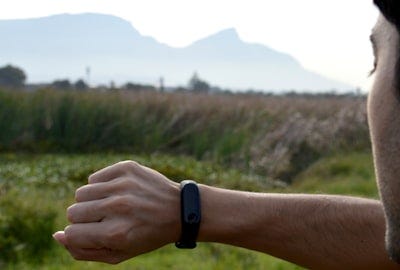Fitness/Data
Low to moderate activity reduces depression and anxiety, fitness apps are tracking a lot more than workout data and your weekly recommendations.
The Rundown
Exercise & Mental Health. In a new paper, researchers from Anglia Ruskin University conducted a systematic umbrella review of studies from across the world to examine the potential of physical activity as a mental health intervention. They found a significant association between participating in low to moderate intensity exercise and reduced rates of depression.
Specifically, the team found that less vigorous physical activity (gardening, golf, walking) reduced the risk of depression by 23% and anxiety by 26%. The results were consistent in men and women and across different age groups.
The reduced risk was not strongly observed for high intensity exercise. Lead author Lee Smith, Professor of Public Health at Anglia Ruskin University explains, “Moderate exercise can improve mental health through biochemical reactions, whereas high-intensity exercise may worsen stress-related responses in some individuals.”
Smith suggests that the benefits to mental health from low to moderate activity levels allow people to make smaller lifestyle changes “without feeling the need to commit to a high-intensity exercise program.”
Fitness/Data. A new study from Incogni, a data protection company, says that many of the most popular fitness tracking apps are collecting a lot more than your workout data.
Using information on the leading fitness and sports apps by revenue, Incogni researchers examined what data the apps collect and share by consulting the developers’ data collection disclosure statements.
A few of their key findings:
-The top US fitness apps collect an average of 15.2 personal data points each about their users. Fitbit collects the most at 21 data points.
-Two fitness apps (Peloton and Yazio) share location with third parties while four apps share user IDs for “advertising and marketing purposes.”
-Seven of the nine apps studied collect users’ photos and videos and five collect their precise location.
-Over 70% of collected data points are non-optional, meaning that using the app is the same as agreeing to the collection (and possible sharing) of the data points.
While Incogni says that the fitness apps included in the survey don't share the data they collect with third parties as much as other apps the company has investigated, the BetterMe app, for example, shares 17 out of the 18 data points it collects with third parties.
The report also recognizes that “privacy can mean many things to many people” but points out that fitness app users may not realize the consequences (for example, more robocalls, spam emails and junk mail) that can come from having their personal data harvested and sold to data brokers.
The study suggests using tools like the Google Play data collection disclosures to make informed decisions about how to limit the data collection potential of the fitness apps you choose.
Extra Point
Watch
The Final: Attack on Wembley. In July 2021, England’s national soccer team made it to the UEFA Euro 2020 Final, coming off a year delay due to COVID. What happened next was chaos as thousands of fans without tickets attempted to breach the stadium. This documentary uses footage from the day along with interviews of fans, commentators, players and officials to explore some of the worst football fan violence in decades. The Final is streaming on Netflix.
Listen
The Roxzone. This podcast is a bit specific but if you’re interested in the latest fitness competition to take on a cult following, Roxzone talks all things Hyrox racing.
Read
Everest, Inc. A new book from journalist Will Cockrell, Everest, Inc. is the story of the commercial industry that was created on and around the world’s highest mountain.



